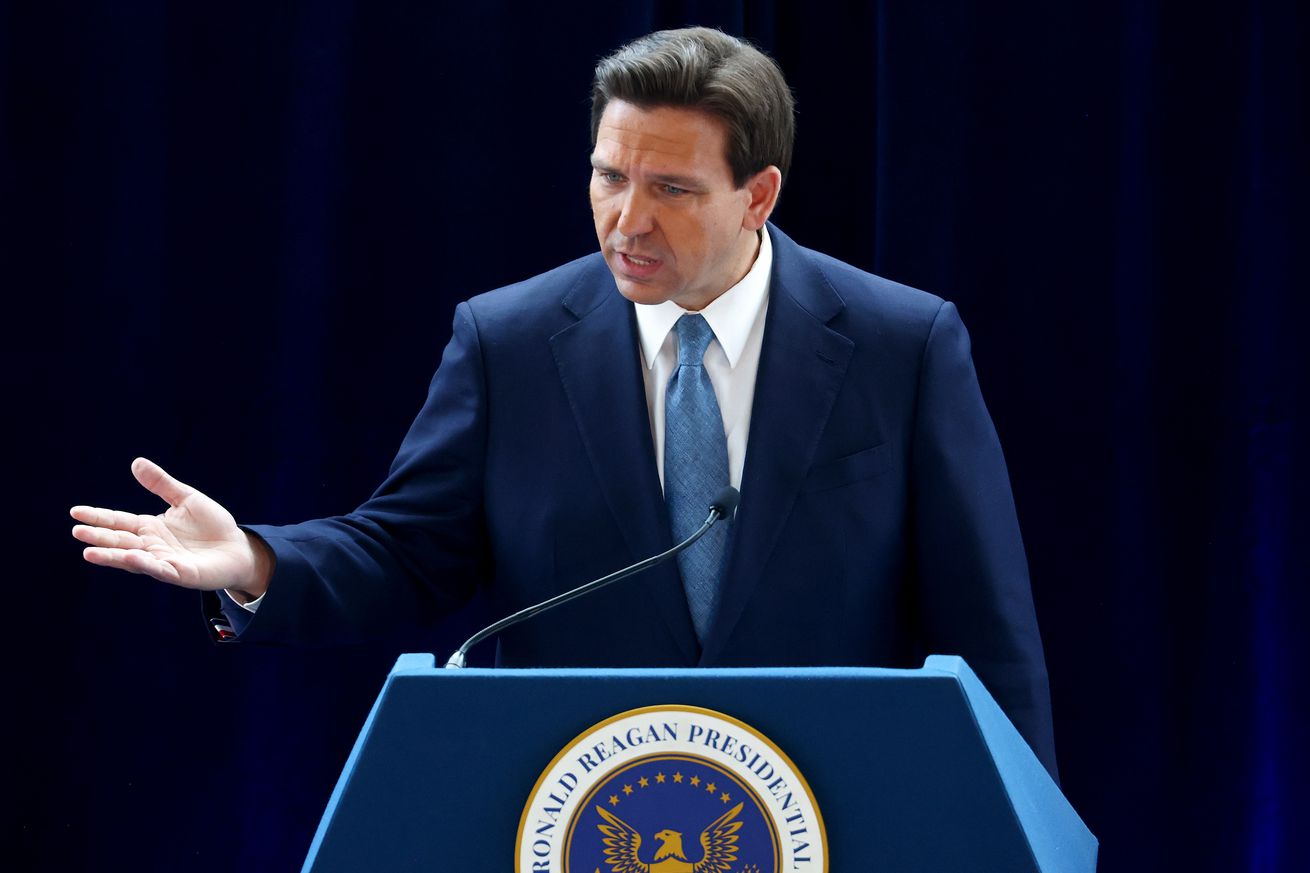
Now the Florida GOP wants political bloggers to register with the government
Florida has been a hotbed of government speech regulations under Governor Ron DeSantis, who has lately even taken to saying he will control Disney’s content. So it’s not surprising to see other Republican lawmakers in the state take broader shots at the First Amendment — but I was admittedly not expecting the latest one to be a blogger registry.
As covered by WFLA last week, state Senator Jason Brodeur has proposed a bill that would require “bloggers” who are compensated for writing about any Florida elected official to register with a state agency — either the Office of Legislative Services or the Commission on Ethics, depending on the post’s subject. Registered bloggers must then submit monthly reports disclosing any posts they’ve written about Florida officials, including how much they were compensated and who offered the compensation. Failure would result in a fine of up to $2,500 for each report, potentially on top of other unspecified penalties.
The idea here is to treat bloggers (a term defined as anyone who submits posts to a “blog,” itself defined as a website that “hosts any blogger,” which is a bit of a tautological brain-teaser) like lobbyists. Brodeur has referred to bloggers as “professional electioneers” and “lobbyists who write instead of talk.” But the bill, which exempts sites attached to newspapers, doesn’t offer much detail about what “compensation” means — which makes it ripe for intimidating anyone from major website writers to people with monetized personal blogs.
Florida has become a testbed for government speech regulations
Ars Technica notes that this amounts to making journalists register with the government and is almost certainly unconstitutional. It’s also not clear there’s support for it even among Republicans — state lawmakers make bizarre, unworkable proposals all the time. The odds of it passing, let alone surviving a legal challenge, seem low.
But it’s also just one entry in a growing list of proposed — and enacted — speech restrictions in Florida. Last month, Florida state Rep. Alex Andrade proposed expanding libel laws with a plethora of new restrictions on journalists, including an evisceration of the “actual malice” standard that sets a higher bar for defamation lawsuits by public figures. That bill was a direct response to a request by Florida Governor Ron DeSantis for weaker press protections. It comes after DeSantis signed the Stop WOKE Act restricting how universities could teach about topics like racism — which a judge blocked as unconstitutional and “positively dystopian.” The year before that, Florida became one of two states (alongside Texas) to ban much social media moderation by private companies, which was also blocked as likely unconstitutional. And then there’s Florida’s “Don’t Say Gay” bill, an attempt to ban elementary school students from learning about LGBTQ identities.
Florida has become a testing ground for a host of censorship experiments — much like Texas, where in addition to the state’s attempted takeover of social network moderation, a recent bill proposed making internet service providers block websites with information about abortion. But these attempts won’t necessarily stop at state borders, especially since DeSantis is a presumed frontrunner in the 2024 Republican presidential primary. And things like weakened press protections might find a sympathetic ear at the Supreme Court, where two justices have pushed to reevaluate the landmark case New York Times v. Sullivan, which laid out the actual malice standard.
Many of these rules are explicitly tailored to attack Republican politicians’ political enemies, whether that’s critical media outlets or social media companies that ban hate speech. But they’re bad news for journalists — and citizens more generally — across the political spectrum. Right-leaning outlets like Fox News, which is currently mired in a serious libel fight over making false election claims, might, in fact, be particularly vulnerable if the First Amendment is weakened in these ways. Across the board, looser libel laws make it easier for powerful public figures to shut down criticism. Paired with the bipartisan attacks on Section 230, they could also goad social networks into taking down a broad swathe of legal criticism to avoid the threat of potential lawsuits.
Hopefully neither of Florida’s new anti-press bills passes, and it seems unlikely that bloggers will be registering their posts any time soon. It’s also, however, clearer than ever how hollow Republican claims of fighting censorship really are.

